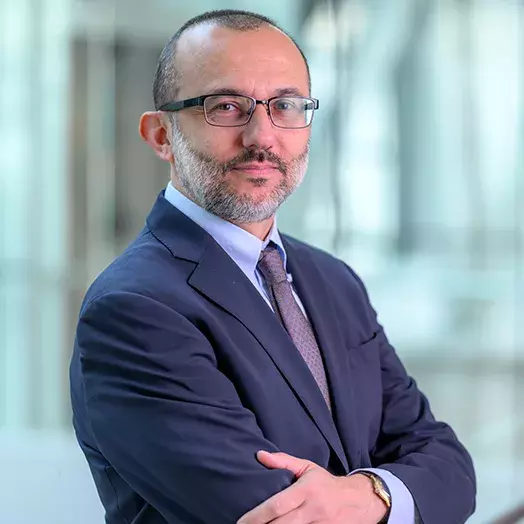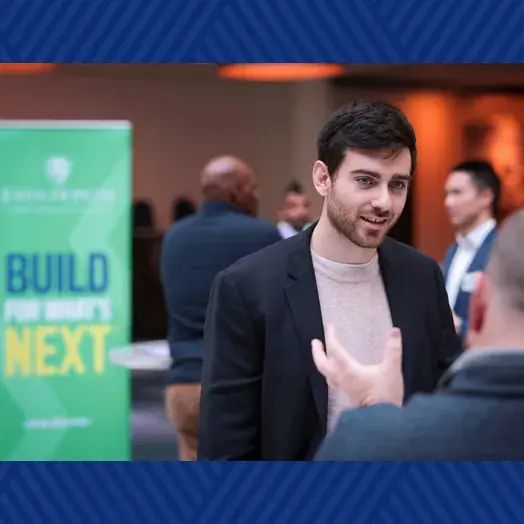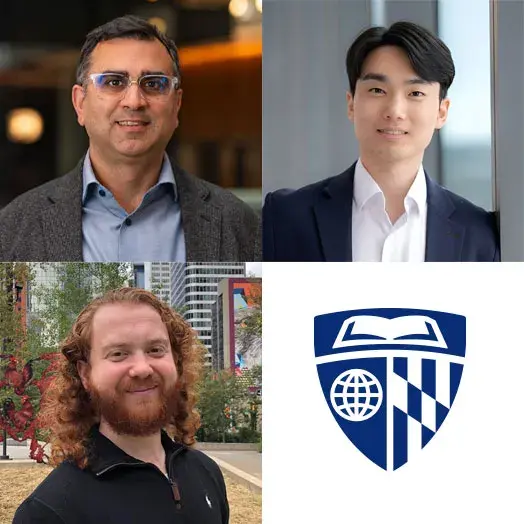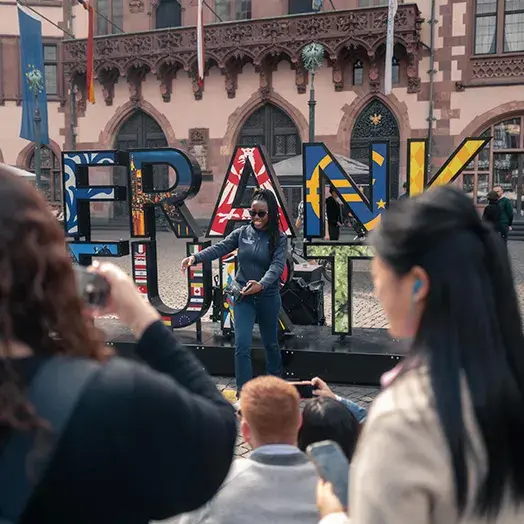Rekor’s Shervin Esfahani (MBA ’14) partnered with Carey’s Innovation Field Project for experiential learning in life-saving data science.

Anti-collision course: Alumnus’ company uses AI to make roads safer
Motor vehicle accidents killed 42,514 people in the U.S. in 2022, according to the U.S. Department of Transportation. But one of the Johns Hopkins Carey Business School’s former students and current corporate partners is working to improve the situation.
“We're saving people's lives by leveraging this kind of technology,” said Shervin Esfahani (MBA ’14), vice president of global marketing and communications for Rekor, a software development company that uses artificial intelligence to improve roadway intelligence.
Rekor’s mission is to “collect, connect, and organize the world’s mobility data” to provide insights that help get people where they need to go more safely. Esfahani explained that the software products his company is developing use AI to fuse countless data points and ultimately make transportation safer and more sustainable.
“Carey’s students confirmed—in a really sophisticated way—the suspicion that our technology is more sustainable and has a much smaller environmental impact [than current technologies].”
Shervin Esfahani (MBA ’14), Vice president of global marketing and communications for Rekor
Full circle
Last semester, Rekor was a corporate sponsor of Carey’s Innovation Field Project, an experiential learning project that pairs full-time MBA students with corporate sponsors who work with them to solve critical real-world business challenges. Esfahani knew Rekor would be a good fit for the program, but more than that, his own student experience with a similar program called the Innovation for Humanity Program inspired him. His cohort traveled to India and worked with regional authorities to improve the community water systems. He said the value he got from the program was unmatched.
“It was one of my favorite things that we did when I was at Carey,” said Esfahani. “For me, that was just such a unique experience that made me understand global issues more broadly, and how that changes international work.”
Yielding results
Now on the corporate side of the IFP program, Esfahani made sure the Carey students got just as valuable an experience. They got in-depth insight into the environmental, social, and government oversight processes that go along with transportation challenges, and they studied how AI can streamline and automate outdated processes. The students also learned how to engage with executive leadership and cross-collaborate with engineers, software developers, and AI testers.
What to Read Next

research
One-year high: The impacts of Maryland’s legalization of marijuana“Carey’s students confirmed—in a really sophisticated way—the suspicion that our technology is more sustainable and has a much smaller environmental impact [than current technologies],” Esfahani said.
Dan Sheats, director of experiential learning at Carey, said “It’s always a joy to reconnect with Carey alumni and explore how our students and faculty can help support their business objectives. Shervin was an ideal project sponsor as he brought a compelling, timely business challenge to the course, and also served as a thoughtful mentor to the students as they learned how to apply evidence-based approaches to real-world business opportunities.”


